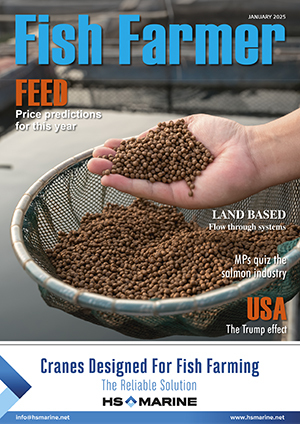National strategy ‘fails to address seafood’
Please register for FREE to continue reading Fish Farmer
Your FREE registration gives you access to all our content: news and feature articles, regular and special guest columnists, Fish Farmer Magazine e-editions, yearbooks, archives, videos and more. As a paying subscriber this would cost £150 per year – but we are extending an offer to register FREE for full access.
Assistant Supply Chain Planner - Mowi Scotland
KyleakinSalary On Application
Farm Technicians (Ardmair & Corry) - Mowi Scotland
Wester Ross£27,236 to £30,504 per annum
Finance Internship (Fort William) - Mowi Scotland
LochaberSalary On Application
Farm Technician (Laga Bay) - Mowi Scotland
Lochaber£27,236 to £30,504 per annum
Project Engineer (12 month FT) - Bakkafrost Scotland Limited
IV54 8XF£45,000 to £50,000 per annum
